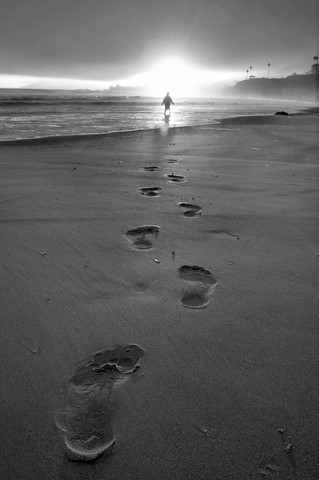How to use an early life lesson for your greater good.
- posted in: Leadership
A Lesson That Changed My Life
When the teacher called my name, I just sat there, stunned. I couldn’t believe it: I was the winner of a national writing contest! It was all the more unexpected because I didn’t even know my work had been entered in the contest.
Back then, I found writing easy and natural. When I’d written my essay, I was completely detached from thoughts of competition or winning, because I didn’t remember the teacher even mentioning a contest. I just did what I was asked to do, which was to write about the future of the world. To me the assignment was purely fun and creative. I was in the third grade.
Winning that contest felt like an amazing accomplishment for me—until it was taken away.
That moment came when the school principal called me into his office. I had no idea why he wanted to see me. When he asked if I had cheated on the contest, I was dumbfounded. I’d written the story on my own, without outside help or copying. But he kept questioning me, making it clear that he didn’t believe me. I asked him why he thought I was a “liar.” He replied that the words I used in my story were beyond a third grade vocabulary level, words like “decade,” for example.
Instead of congratulating a student who had excelled beyond expectations, the principal seemed more inclined to prove that such excellence wasn’t possible.
I was too young to know how to defend myself. I was guilty until proven innocent, and he acted so certain that I gave up.
What could an eight-year-old boy do in the face of adult authority?
As I walked out of his office carrying my Big Chief notepad, I felt sick inside. I felt tainted. From that moment on, I equated writing with pain. I didn’t think it was worth the effort to do well at something, if it would only lead to unfair accusations. I did as little writing as possible for more than 30 years.
Has there been a “writing contest” story in your life, a moment along the way when you got the message to shut down an expression of yourself?
It’s hard to blame that eight-year-old boy for shutting down. It also seems pointless to blame the principal, just another human prone to mistakes.
But what about the grown man, who, based on a mistake someone else made when he was eight, decided to give up on his gift and hide it from the world?
As a leader, I find it wastes time to place blame or play victim.
I’d rather ask these questions: 1) How can I share my gifts? And, 2) What steps can I take to let go of the past and begin expressing myself again?
Like you, I have something unique to offer…something that only I can offer. We all have something unique to offer. But are we courageous enough to let go of the villains and victims of our past and see ourselves as we truly are, and see our gifts for what they can be?
Children are always learning, and when we grow up, we don’t have to stop. The lesson here is one of awareness. My choice of what to do with that moment in the principal’s office was available then, and it still remains. I can use that moment as an excuse to shrink from obstacles: injustice, fear of authority, and a belief that effort is rarely rewarded. Or, I can use it as an opportunity to grow into my strengths: a sense of justice, an instinct to stand up for myself, and a gift so exceptional that someone had trouble believing it.
It’s not all that important for us to understand why we chose to shut down along the way. Only that we have.
In my leadership work, I often say, “Understanding is the booby prize.” It no longer matters what choice you made then. What matters is the choice you make now.
Now is all any of us has. Leadership is presence in action. Good leaders don’t waste time blaming themselves or others for their lot in life. They assess what they have to offer now, and create from there.
If you can see your way to that, your next question will be, “What should I create?”
How about whatever is in front of you?
If you were being exactly the person you always wanted to be, what would be the next powerful thing to do?
Why not do that?
I’ve long since reframed my picture of that moment in the principal’s office, so that now I see it as a gift. Every day, that long-ago principal tests my resolve to write and the little boy I once was gives meaning to my words. When I write, I think of him.
The people and moments that challenge us can be our best teachers, if we let them be. These experiences can give us the tools to shape our purpose and to develop our Leadership. Further, each of these events are simply learning steps in the direction of mastery. When I look back on the path of my life, I see only progress; not perfection but progression. 
Blessings,
Stephen Paul
